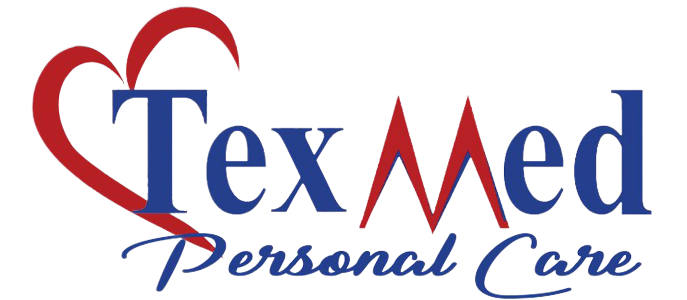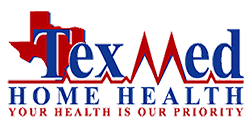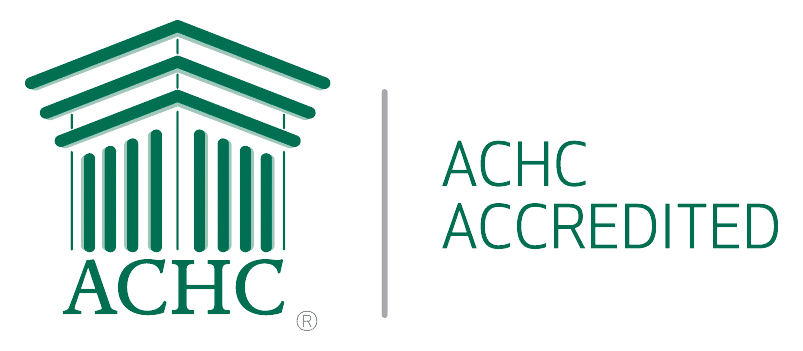As a Certified Nursing Assistant (CNA) or Home Health Aide (HHA), you play a vital role in the healthcare community. You are responsible for providing care and support to others, often in challenging environments. While this work can be highly gratifying, it can also be emotionally and mentally exhausting.
Continuing to provide the highest level of care possible as a CNA or HHA requires the ability to protect your mental health. What follows are red flags to watch for, along with self-care tips every caregiver – including those in Killeen – should know.
Common Mental Health Issues for Professional Caregivers
In addition to the physical rigors, CNAs and HHAs often face these challenges:
Depression and Anxiety
HHAs and CNAs often work in fast-paced, high-pressure environments where they may be exposed to trauma, death, and suffering on a daily basis. Many eventually experience anxiety and depression as a result. Like family caregivers, professional caregivers may also struggle with feelings of burnout, which can intensify these issues.
Compassion Fatigue
Compassion fatigue is a type of burnout that may occur when a caregiver becomes emotionally depleted from caring for others. This condition can present when a CNA or HHA becomes overly invested in their patient’s well-being to the point they neglect their own needs. Symptoms of compassion fatigue may include feelings of hopelessness, exhaustion, and emotional numbing.
Post-Traumatic Stress Disorder (PTSD)
Professional caregivers sometimes develop this condition after witnessing a traumatic event. Symptoms of PTSD include flashbacks, nightmares, and avoidance of triggers related to the event.
Substance Abuse
CNAs and HHAs can be at higher risk for substance abuse, notably when using drugs or alcohol as a coping mechanism for the stress of their job. Substance abuse can lead to a whole host of mental health issues, including anxiety, depression, and addiction.
Suicide
Sadly, suicide is also a concern for stressed CNAs and HHAs. Caregivers may be at higher risk for suicide due to the emotional strain of their job and the physical demands of the work. As a CNA or HHA, it is essential for you to seek immediate help if you are experiencing suicidal thoughts or feelings.
Mental Health Tips for CNAs and HHAs Working in Killeen
Because of how emotionally draining serving as a CNA or HHA can be, you must find healthy ways to decompress. Here are some tips to help you do just that:
Practice Self-Care
Self-care is essential for anyone looking to protect their emotional wellbeing. As a CNA or HHA, your days can be long and stressful. That means you need to take time to care for yourself. This practice can include anything from spending a few minutes meditating to exercising regularly, eating healthier, spending time with loved ones, or getting an annual checkup at the doctor’s office.
Build a Support Network
Because of the emotional investment involved, you must have a support network in place to help manage negative feelings. Your network may include fellow CNAs and HHAs who understand what you’re going through, as well as licensed mental health counselors, faith leaders, and trusted friends and family. Online caregiver support groups can also be a safe place to express your feelings and get advice without being judged.
Set Healthy Boundaries
As a CNA or HHA, you may find yourself working long hours or dealing with difficult patients. While it is important to provide the best possible care for your charges, it is also important to set boundaries for yourself. This may mean saying “no” to extra shifts when feeling overwhelmed or taking time off when you need it. Setting healthy boundaries in the workplace will help prevent burnout and protect your mental health.
Focus on the Positives
It’s easy to get bogged down by the challenges of working as a CNA or HHA. However, it is essential to also focus on the positive aspects of the job. Take time to celebrate small victories along the way, whether it’s helping a patient eat everything on their dinner plate or receiving positive feedback from a supervisor.
Focusing on the positives rather than dwelling on the negatives will help you maintain a healthy perspective and avoid getting overwhelmed when you’re having a bad day.
Practice Mindfulness
Mindfulness is another powerful tool. When properly practiced, mindfulness teaches you to be present in the moment and manage stress more effectively. This process may involve taking a few deep breaths before entering a patient’s room or client’s home to practicing guided meditation during your lunch break. Whatever form mindfulness takes for you, be sure to incorporate it into your daily routine.
Schedule “Me” Time
As a busy CNA or HHA, it is also essential to take time off when you need to. Whether that “me” time means booking a vacation or taking a sick day when you’re not feeling well, be sure to prioritize your own health and well-being. Taking a well-deserved break allows you to recharge your batteries and return to work feeling refreshed, empowering you to provide the best care possible for your charges.
Switch to Home Care
Many burned out CNAs and HHAs in Killeen who formerly worked in other patient care settings are now transitioning to senior home care.
Here are some of the mental health “perks” you can expect while working as an in-home caregiver:
- Flexible scheduling
- Job security
- Competitive pay
- Staff training
- Career advancement opportunities
- Employee benefits and incentive bonuses
In summary, practicing self-care as a CNA or HHA is just as important as taking care of your charges. Following the steps listed above, including working for the right employer in the growing home care industry, will help protect your mental health so you can provide your patients or clients with the nurturing they deserve!
Ready for a Change? Join Our Winning Team in Killeen, TX.
As a CNA or HHA, are you interested in a fresh career challenge? If so, TexMed Home Health invites you to join our winning team in Killeen, TX. Due to our expanding client load, we are currently seeking qualified individuals to fill several exciting caregiving positions. While proudly serving communities in Killeen, Copperas Cove, and Temple, we support clients and their families with services that include Companionship Care, Household Duties, Meal Planning, Medication Supervision, Intravenous Therapy, Occupational Therapy, Physical Therapy, Skilled Nursing, and Speech Therapy.
As a highly valued member of the TexMed team, you’ll enjoy a fast-paced, positive work environment where your input is valued and hard work rewarded. We also offer competitive pay, flexible scheduling, ongoing staff training, and career advancement opportunities galore. No matter your experience level or education, we’d love to hear from you! To learn more about our open positions, please visit us today at texmedhh.com.






